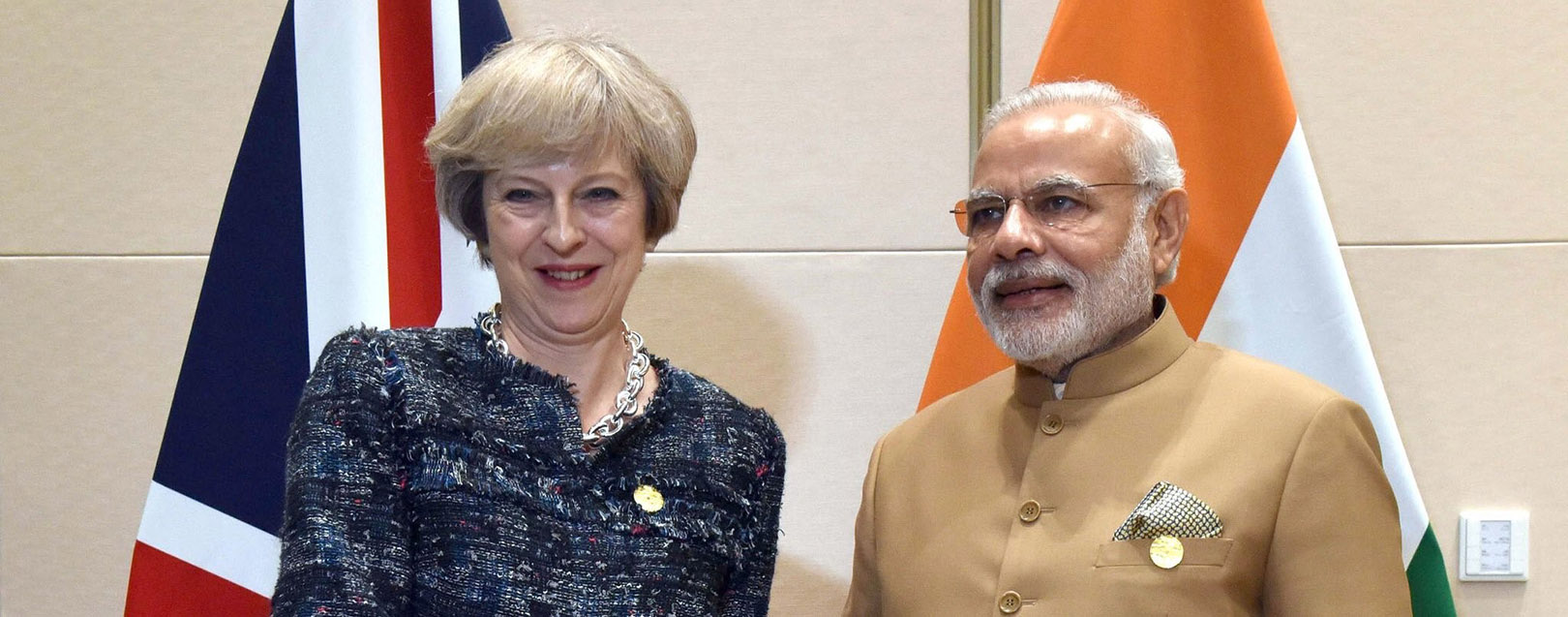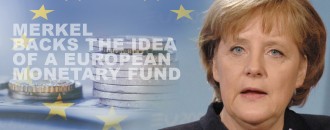
India Inc. Upbeat on Theresa May’s Visit
The Dollar Business Bureau
All eyes are on British Prime Minister Theresa May's India visit after the latest changes in UK visa norms. Theresa May will visit India on Sunday as part of her three-day visit. This time around the PM is visiting with the largest ever business delegation from her country. India Inc views this as a sign of good times to come.
Bilateral trade will be at the forefront of discussions between the UK and India. Post Brexit, forging strong non-EU alliances with countries like India is crucial for the UK.
Trade between India and the UK is expected to suffer following the vote in favour of Brexit. The subsequent drop in the sterling pound value too has added to the woes of exporters. Generally, Indian companies take leverage of the UK as a gateway into Europe. Adding to this, the latest changes in UK visa rules announced on Friday has created tremors in India Inc. as the services sector is worried over the mobility of professionals with the new rules requiring a higher base wage.
The Dollar Business spoke to the industry representatives to understand their expectations from May’s visit in the backdrop of Brexit, the fall in the value of the pound and the new visa regime.
Though the EU is India’s largest trading partner, but exports from the UK are declining thanks to volatility in forex market. On the other hand the drop in the pound value will impact Indian exports, observe analysts. The sterling pound has lost 18% of its value since Brexit. Indian exports to the UK are reeling under pressure. Pound volatility will further increase pressure on margins of Indian exporters. However, pound rallied from $1.21 to $1.25 on Friday.
The drop in the pound value could benefit small and medium-sized enterprises (SMEs) as their imports are higher than exports, observes Federation of Telangana and Andhra Pradesh Chambers of Commerce and Industry (FTAPCCI). Anil Reddy Vennam, immediate past president at FTAPCCI, told The Dollar Business: “There wouldn’t be much impact on the SME sector. In fact, the drop in the pound value will benefit the industry as the majority of SMEs import machinery, machine tools, technology, etc. I forecast some sort of slowdown in post-Brexit bilateral trade. Because exporters and importers may turn cautious to see the immediate impact after the Brexit. However, this will be for a short period only.”
The British South India Council of Commerce (BSICC) though sees more business opportunities for India and the UK in the post-Brexit regime.
Sujith Nair, Director at BSICC, said: “Post-Brexit, we forecast more opportunities between the UK and India as trade negotiations are expected to be easier and faster. Coming to the drop in the value of the pound, since most payments are done in dollars rather than British pounds, I don’t see much impact on bilateral trade. However, it will impact the remittances to India. We want India and the UK to work on a free trade agreement(FTA) so that it’ll take the bilateral trade to the next level. Immigration is another major area considering the IT professionals from India. Students should be allowed to work in the UK after completion of their studies.”
Welcoming the UK Prime Minister May along with her delegation comprising SME representatives, Debashis Bandyopadhyay, Director (Policy) at Federation of Indian Micro and Small & Medium Enterprises (FISME), said: “It is good news that Prime Minister May’s delegation includes representatives from small and midsize businesses. We look forward to an enhanced level of MSME association between the two countries.”
As for the visa requirements, the Indian IT segment shrugs it off as there may not be a significant impact. A top official at one of the five major IT exporters from India said: “Our IT professionals are paid more than what the new requirement that the UK stipulates.”
KK Lalpuria, Executive Director, Indo Count Industries Ltd, said: “It will be so great if Theresa May gives us MFN status. Along with MFN status, I will also say that India's relations with other European partners (in the light of various FTAs India already has with EU partners) should also be taken into account before arriving at any decision in this regard. Because these markets will remain our major markets regardless of Brexit.”
Lalpuria further said that in recent years, the UK market for Indian textile goods and made-up items has become more mature and have gained strength- both quality wise and value wise. “Unlike the case with synthetics and cotton, India is the ultimate destination. Hence, the Indian government should pursue a pro- cotton trade policy with them. This will benefit many exporters from India,” adds Lalpuria.
Puran Dawar, President, AFMEC, said: “Given the very fact that the UK has always been one of the major traditional markets for India. It is high time that MFN status and zero duty should be given to India. And why not, our quality is world class and we are more cost effective when compared with China as well. This is the advantage that UK Prime Minister must consider. India is the leading destination for leather exports to the UK. I believe a bilateral trade will create a win-win proposition for both the countries.”
Rajiv Wasan, Secy General, AFMEC, said: “Leather exports have gone down due to Brexit shock and the depreciation in the pound. Because of this, we’re now quoting in US dollars. The UK government should take measures to protect Indian exporters. Visa regulations should also not be tightened further because such a move will hamper bilateral trade.”
Analysts hold a positive outlook on the UK growth. Nissan’s commitment to its Sunderland plant indicates a softer Brexit than it had been assumed, observe some economists. Adding to these positive factors, the UK government may seek a deal to continue paying into the EU budget. After the Brexit tremors, European bank stocks started recovering and the Article 50 ruling may skew investor sentiment away from a hard Brexit.
Back home, May is also facing a revolt over her Brexit strategy after the High Court ruled that the UK can’t leave the European union without the permission of the British parliament. Three senior judges ruled on Thursday that the government can’t press ahead with triggering article 50 of the Lisbon treaty, the formal process for beginning Brexit, without first consulting Parliament and MPs in the Commons and Lords.
By all accounts, Brexit and its consequences on bilateral trade, and the new visa regime will be up the major talking points during May’s first visit to India.





 to success.
to success.